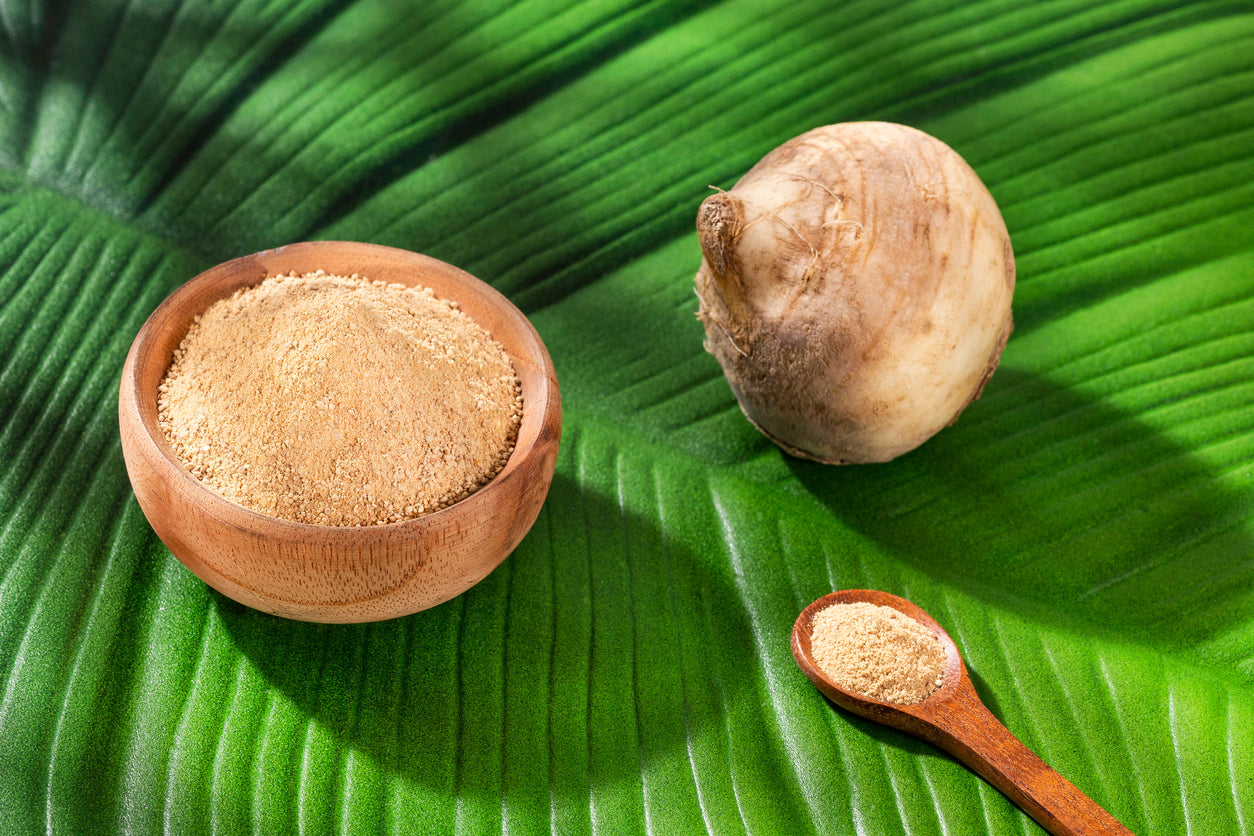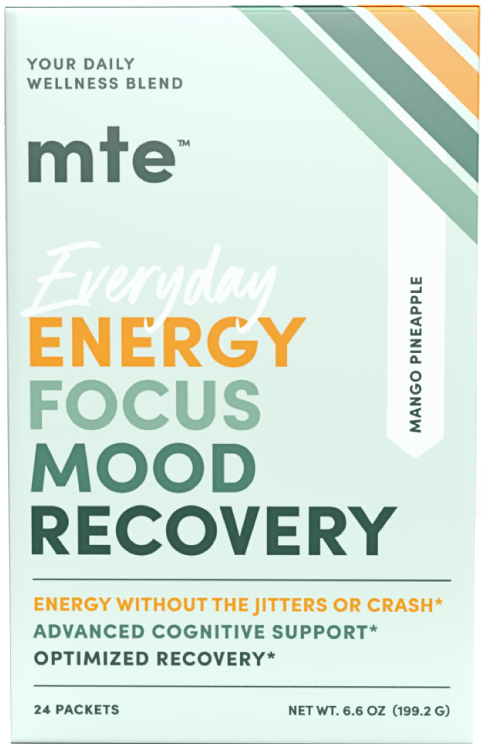
Naturally Focused: Using Nootropics to Navigate Distraction
Bet if you are reading this article on your phone you’re probably doing so between TikToks. Or maybe you’re skimming the web for a solution to your distractions, which has only led to several others. Good news – this isn’t one of them. Stay and (do a little more than) skim for a while, and learn about the wonderful world of nootropics – nature’s solution to society’s goldfish-short attention span.
Our society thrives on this idea that multitasking is something that only the smartest and most capable are capable of, as if having too much to do is something to strive for. Working on several things at once is a sign of high executive control and time management, right? Actually, no. In fact, research indicates not only is our perception of our ability to effectively multitask hugely inflated, but that feeling like you’re good at multitasking is actually a sign you’re too distracted to sit down and hone in on one thing for very long.
This begs the question that if it’s not the smartest and most capable of us that can multitask, is it the multitasking is making us all less smart and less capable?
Where did we go wrong?
When Did Simply Paying Attention Become So Difficult?
For the last couple decades, we’ve been bombarded with computers and cellphones that promise greater work efficiency and ease of communication. Interconnectivity and wide availability of information and resources should make everything easier – it should be easier for us to focus, yet it’s just become more difficult.
Is it technology, though? Or is it the fact that all those tech-driven promises of improved productivity have actually increased pressure on all of us to become more productive in tandem. Which kind of misses the point, but in a culture that prizes professional hardship, not exactly a plot twist. So yeah, scrolling social media and being constantly bombarded with ads and products helping? No. But is the fact that you’re perpetually
- Tired
- Overstimulated
- Stressed out
- Overscheduled
- Sleep-deprived
- Overcaffeinated
- Irritable
- Semi-depressed
helping? Also no. To the person who likened us to monkeys with anxiety – you’re not exactly wrong. Where all our prefrontal lobe functions and ability to learn and problem solve improved, our stress-management mechanisms didn’t, and by the time you actually feel stressed, you can be sure that your brain and body were trying to manage it for a while before they became overwhelmed, too.
What Are Nootropics & Are They Actually a Solution to Distractions?
Nootropics are a relatively new term in health and wellness, but you’ve likely been consuming nootropics daily for your entire adult life if you’ve ever had caffeine. The word “nootropic” comes from the Greek word for ‘bending’ or ‘shaping’, which describes what researchers think are nootropics’ ability to:
- Improve memory
- Increase mental alertness
- Promote concentration
- Boost energy levels
Unfortunately, nootropics can be a controversial topic but only because there is no distinction between the safe, natural nootropics like paraxanthine and l-theanine versus the crazy chemical ones that come with little to no safety data. But if you’ve gotten this far into the article and want to prove to yourself you can finish something, don’t tune out now – we’re just getting to the good part:
How Do Nootropics Work?
That’s a good question and honestly the science hasn’t completely elucidated the mechanism of action for nootropics, but what they do suspect is that nootropics assist in the brain’s ability to concentrate, and perhaps more importantly, to form new memories. Think about it – when caffeine hasn’t turned tables on you and made you jittery, you felt more alert and able to focus, right? That’s what nootropics are supposed to do… plus a bunch of other cool stuff. But this article is about distractions.
Annnd we’re distracted. Topical.
In research, this evaluation of the ability to focus, learn and remember is called neuroplasticity, a term that alludes to the idea that the brain, and more particularly the neurons, are capable of making more enhanced connections with other neurons, which in turn promote the process of higher-order thinking and the ability to create new memories.
Neuroplasticity is so important not only because we live in such a distracting world but also because neuroplasticity dwindles as we age. Add in the environmental factors that advance cognitive decline, and you’ve got the perfect recipe for a society full of brain fog and feelings of failure.
We already know caffeine’s not helping. We’re dependent on the roller coaster of sleeping poorly, waking up with coffee, being cracked out and jittery for a bit in order to get an hour or so of focus in before the caffeine crash that causes us to, what? Reach for more caffeine.
Luckily, caffeine is not the only nootropic available, and it’s definitely not the healthiest or most effective one.
Looking Behind the Caffeine Curtains to Discover Paraxanthine
Our search for the perfect nootropic stack led us to several of the well-researched, scientifically-supported ingredients in MTE – saffron and eleuthero being a couple favorite nootropics for mood and focus. But to focus, let’s talk about the nootropic we used in MTE to replace caffeine: paraxanthine.
Paraxanthine is a metabolite of caffeine; when caffeine is broken down in the liver, we observe paraxanthine as 80+% of its byproducts (read: metabolites). Until recently, no one had figured out how to synthesize paraxanthine to utilize it separately from caffeine, which is likely why few people know of it… yet.
What has happened, now that we can consume paraxanthine directly as an ingredient in wellness powders and energy supplements, is that we’ve bypassed everything crappy about caffeine. The stress response that causes the boost in focus also causes jitters, stress, sleep disturbances, and crash. Paraxanthine has been just under the surface the whole time, boosting focus without eliciting a stress response, which means no jitters, stress, sleep disturbances or crash.
How Does Paraxanthine Help You Pay Attention?
While the exact mechanisms by which paraxanthine acts aren’t yet known, the findings from studies on paraxanthine indicate all the effects we’ve just discussed are true. Looking at the research:
In a 2010 study on paraxanthine vs caffeine, subjects who took paraxanthine experienced equal energy and focus to caffeine, but less anxiety, no crash, and higher levels were not associated with the negative side effects associated with caffeine, which – let’s be honest – are distracting.
A study done in 2021 summarized their results with a pretty significant statement:
“Results provide evidence that acute ingestion of 100 mg and 200 mg of PXN may affect some measures of cognition, memory, reasoning, and response time as well as help sustain attention. Additionally, that acute and daily ingestion of PXN for 7 days is not associated with any clinically significant side effects.”
A 2024 study looking at whether paraxanthine acts independently from caffeine gave subjects cognitive evaluations before and after a 10km run. While both the placebo and caffeine+paraxanthine group experienced lower scores, more errors and less memory retention after the run, the group given only paraxanthine experienced less errors and better memory retention after the 10km run.
Bonus: the paraxanthine group also had no biomarkers associated with the false stress response compounds like caffeine cause.
Learning How to Multitask Without Actually Multitasking
We know flitting from one thing to another isn’t good for us. It’s not helping our attention span, ability to learn, or our productivity. But besides adding a caffeine-free paraxanthine powder to your daily routine, how do you better manage multiple tasks while encouraging neuroplasticity?
A great strategy that’s just starting to take hold, especially in academic settings, is called time blocking. Say you have 3 major tasks today. Task 1 will take 4 hours but it’s easy. Task 2 will take 2 hours but it’s very involved. Task 3 will take 1 hour, but it’s SO boring. How do you do it all without making a multitasking mess?
With a time blocking strategy, you evaluate the difficulty of the tasks, time of day, your personal limits, and any other pertinent factors, and break up each task into a segmented schedule. Maybe do 1 hour of Task 1, take a 10-minute break, do 30-minutes of Task 2, 15-minutes of Task 3, and then another 10-minute break.
In this way, you’re not droning through really long tasks; you’re not weighing yourself down in several hours of a really difficult task; and you’re not wading through a horribly boring task all at once – all things that would have led to distraction. Plus, those 10-minute breaks allow you to give yourself some distraction-based grace. Scroll Insta; solve today’s Wordle; text your best friend. 10 minutes later, get back to it.
Time blocking strategies turn multitasking into task switching. And where the former hampers your ability to sustain attention and focus, the other enhances your ability to focus as well as to pivot your attention, supporting that all-important neuroplasticity. Try time blocking and MTE at the same time and you’re in for a complete nootropic-backed focus transformation.
So bring it on TikTok; hit us with your best shot Facebook – we’re ready for the distraction.



